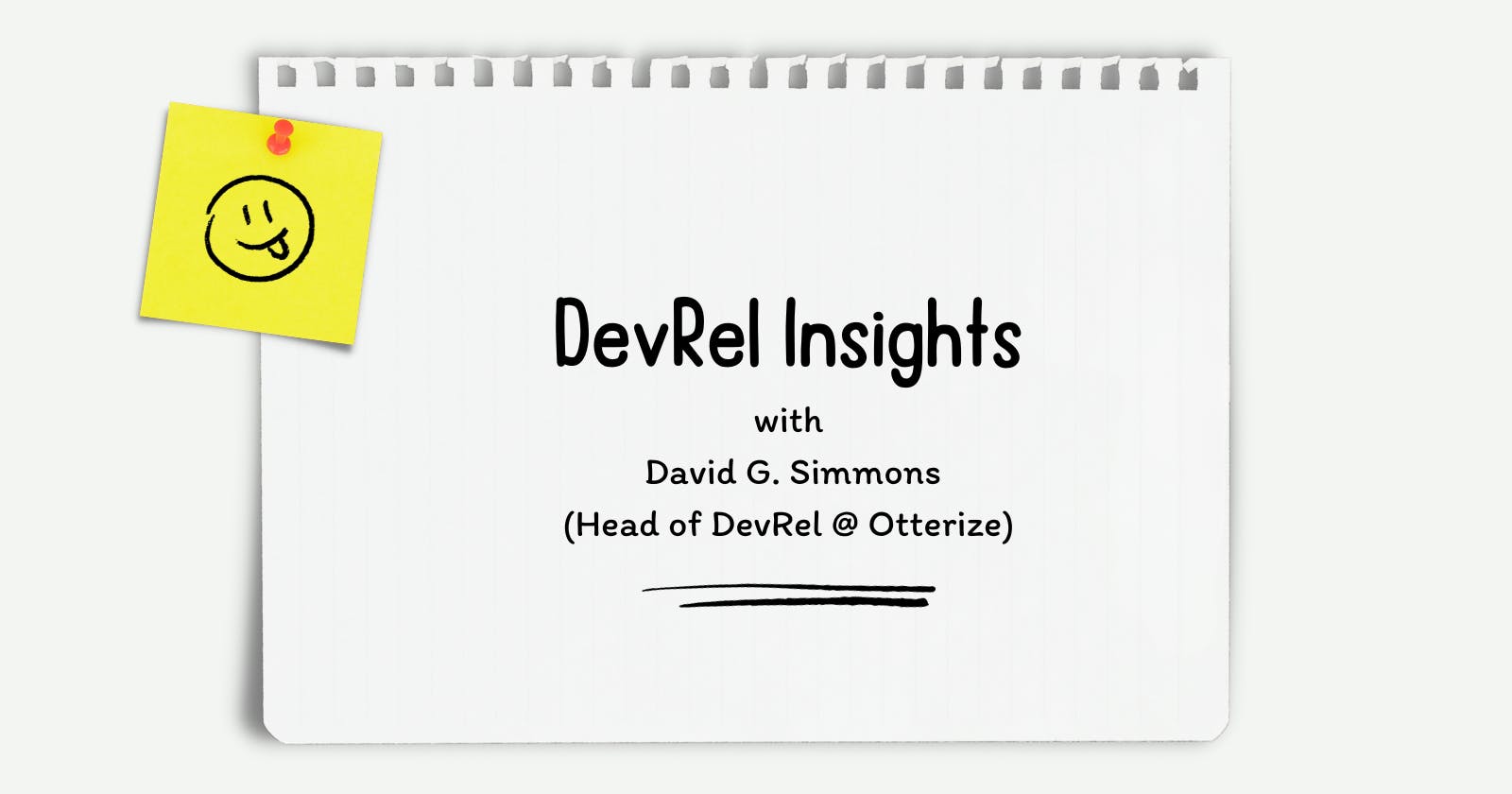David G. Simmons is the head of DevRel at Otterize. He has led the DevRel team at several organizations including Camunda and Startree. He started doing Devrel even before devrel was known as what it is today.
In my conversation with David, he shared a lot about how he got into DevRel. As someone with a lot of experience, he has interviewed people for devrel roles and he talked about how he accesses people as a hiring manager, how you can stand out during interviews, and a lot of other things.
How did you get into DevRel and how did you know it was the perfect role for you?
David: I've been doing DevRel since the 90's. It wasn't actually called DevRel then but I was doing a lot of writing and also speaking about the things I'm doing. I wasn't fully into Dverel as I was going back and forth between engineering and DevRel. In 2011 I started working full-time as a Developer advocate although we were called Developer evangelists back then.
From what you shared, DevRel is centered around sharing knowledge through writing, public speaking, and community work.
David: The basis of DevRel is helping people and I think these things encompass them all.
With over a decade in Devrel, you've likely interviewed many for such roles. What questions help you find the best fit for your company?
David: The first thing I’d like to see is how you’ve interacted with developer communities, the kind of content you’ve written, and if you've done any speaking at conferences.
I’d also like to see if you can answer technical questions because as a developer advocate, you’re going to be asked a lot of questions by your community. So for instance, if it’s a database company, I’ll ask you to tell me a little bit about your understanding of databases. While it is good to know the answer to these questions, knowing how how answer also matters.
There's a common misconception that developer advocates don't need coding skills or that it's not crucial in their role. What's your take on this?
David: There are lots of jobs in Devrel. There's a developer advocate, community manager, developer experience, and others. For some of those jobs, you don’t have to be technical, But developer advocates are the sort of frontline people talking directly to developers. And I do believe that those people need to be technical because they need to be able to talk to developers about technical things. They need to be able to understand what the developers are doing, how they're doing their job, and the sort of details of whatever it is that they're advocating for.
How important do you think cover letters are when applying for jobs, especially DevRel roles?
As a hiring manager, do you read through the cover letter when they're sent in for job applications or do you think they're a waste of time?
David: I do, and there's a reason that I do because a lot of what developer advocacy and developer relations are about is your ability to communicate. And so if you write a cover letter that is full of grammatical mistakes and spelling mistakes and doesn't communicate the message, then you're showing me that you could be better at communicating.
In one simple word, how will you describe developer relations?
David: There’s no simple word to describe developer relations. The best way to describe it is that you have a full-time job in marketing, engineering, product marketing, and a couple of other full-time jobs.
What’s the one thing someone you’re interviewing can do or say during an interview, that will leave a good impression?
David: Honest skills assessment. Being confident at what you’re good at and also being transparent at what you’re not but showing willingness to learn.
For someone who wants to transition to DevRel, what would you advise them to do?
David: For most people in DevRel, one of the ways they interact with developer communities is to provide content. Write blog posts, and be an active member of a community. A lot of companies have blogs most times they'll never say no if you offer to write for them. If a company is also involved in open source, you can make contributions to their projects.
And that's a wrap with this conversation. I hope the tips that David mentioned will help you in your next interview. Please like and share this article if you find it useful.

